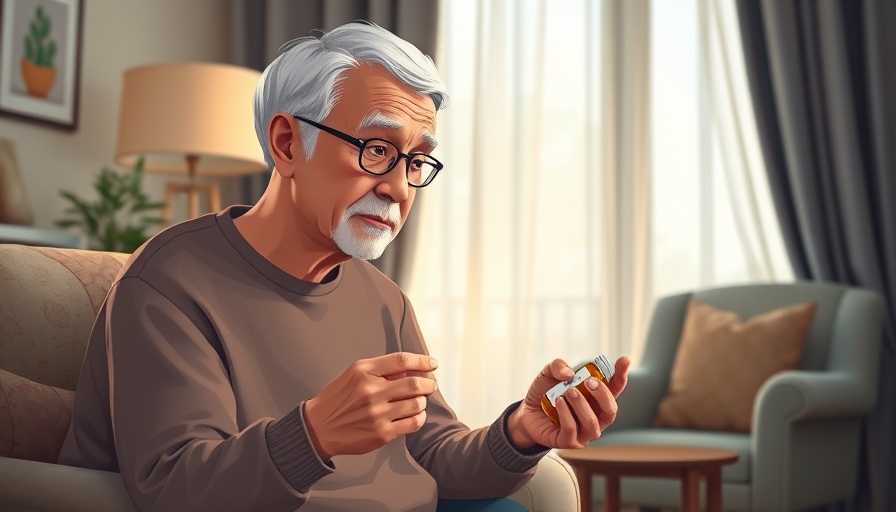
Understanding Aleve: A Common Pain Reliever with Hidden Risks
Aleve, a widely used nonsteroidal anti-inflammatory drug (NSAID), is popular among many adults for its efficacy in reducing pain, swelling, and fever caused by conditions like arthritis and headaches. However, for older adults, who typically metabolize drugs differently, the risks associated with Aleve use are heightened.
Why Seniors Should Exercise Caution
As people age, their kidney function declines and they often face chronic health issues such as hypertension or heart disease. These vulnerabilities make older adults over 65 especially susceptible to serious side effects of Aleve. Side effects can include gastrointestinal problems like ulcers and bleeding, renal issues, increased blood pressure, and greater risk of cardiovascular events. Taken together, these factors underline the necessity of monitoring Aleve intake among seniors.
Key Side Effects to Watch For
While many younger individuals can tolerate Aleve with relative ease, seniors may experience significant adverse effects that develop gradually, often without obvious symptoms. The combination of multiple medications (polypharmacy) also adds complexity to medication management. Important reactions to watch for include:
- Gastrointestinal bleeding or ulcers
- Kidney function decline
- Fluid retention and increased blood pressure
- Heightened bleeding risk, especially when taking anticoagulants
The Value of Professional Medication Management
Given these risks, it is essential for seniors and their caregivers to take a proactive approach to medication management. Regular consultations with healthcare providers and consistent monitoring can help mitigate potential complications. Care teams trained in senior care can pinpoint adverse drug reactions and ensure compliance with medication guidelines, which is crucial for maintaining health and safety.
Conclusion: A Call for Awareness
As we strive for healthy aging, understanding the safety profiles of medications like Aleve is vital for families caring for elderly loved ones. Awareness and professional guidance can lead to safer medication practices, helping seniors remain comfortable and independent.
 Add Row
Add Row  Add
Add 




Write A Comment